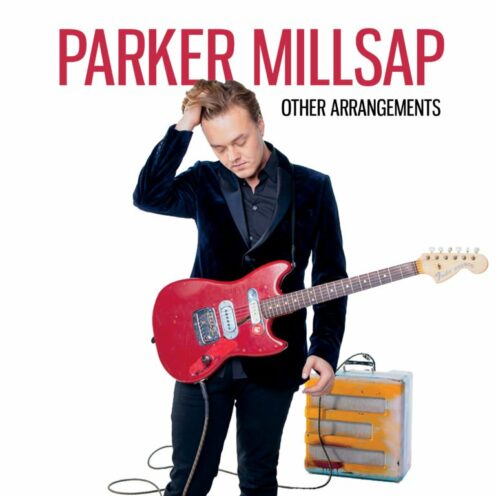
Parker Millsap’s last record was Biblical. On 2016’s The Very Last Day, Millsap—just 23 years old at the time—wrote songs about Lucifer, the apocalypse, preachers, fire, and forgiveness. It was an intense, ambitious set of songs, and it only worked because of Millsap’s big hurricane of a voice. Here was someone with the kind of unhinged bellow that could sell a song about the devil trying to entice a pretty girl to climb into the front seat of his car. Here was a singer who could sell the desperation of a story where a preacher’s son had to come clean to his dad that he’d fallen in love with a boy. As a piece of writing and a display of vocal work, The Very Last Day was easily one of the most impressive albums of 2016.
On the follow-up, called Other Arrangements, Millsap drives pointedly in the opposite direction. This record sheds the stakes, ambition, and Biblical themes of its predecessor for a straighter, simpler proposition: pop music, circa 1963. The average song length is less than three minutes, and the best tune on the record—the propulsive, infectious “Gotta Get to You,” clocks in at 2:03. Instead of shooting for larger than life, Millsap is trying to serve up small, perfectly honed nuggets of throwback rock ‘n’ roll glory.
It mostly works. Millsap’s howl was a perfect match for the fire-and-brimstone songs of The Very Last Day, but it’s also surprisingly well-suited to this brand of early pop/rock music. Picture John Lennon shredding his vocal cords on “Twist and Shout” and you have a pretty good idea of what Millsap is going for here. In fact, Other Arrangements might have been even stronger if Millsap had fully embraced the early Beatles ethos and made a set packed with hooky, upbeat rockers.
As is, a lot of Other Arrangements sits toward the middle of the tempo spectrum. Those songs, like the title track and the breezy “Your Water” (co-written with Sarah Jarosz) are lovely and well put together, helping the album keep a foot in the country/Americana world even as Millsap strays further from that world than ever before. The most fun songs on the record, though, are the ones that really cook. “Gotta Get to You” feels like a runaway train about to careen off the rails, and the intensity helps Millsap’s voice shine. Something similar happens on “Let a Little Light In,” which is driven by a relentless beat, handclaps, and a big climactic chorus where Millsap starts shrieking in falsetto. These are fun, tightly wound rock songs of the sort that we don’t hear very often anymore. Even opener and first single “Fine Line,” which veers a little too far toward “Jack White blues rock” for my taste, is still a foot-tapping jam that gets better with every listen.
If there’s a drawback to Millsap’s new sound, it’s that it takes one of modern music’s most intriguing storytellers out of the storytelling game—at least for now. That’s not to say the songs on Other Arrangements aren’t lyrically interesting. “Gotta Get to You” is packed with snappy and memorable lines. In the last chorus alone we get both “To smell the roses/Just call me Moses/The waters let me through” and “Just call me Earnhardt/I’ve got a burned car/I’m trying to pass the blues,” playful bits of wordplay that make for a one-of-a-kind love song. Closer “Come Back When You Can’t Stay,” meanwhile, is a gorgeous lullaby that sounds like a love song, but is really about a guy who doesn’t want his one-night stand to spend the night.
Still, there’s nothing here with the depth or profundity of “Heaven Sent,” which is as fine a song as anyone’s written this decade. On the last record, it felt like Millsap might be the next Jason Isbell, just in terms of sheer songwriting gifts. Here, we’re going to need to table that conversation until a later date. With all that said, it’s exciting to see a talented young artist subvert expectations so substantially. Other Arrangements might not be super deep, but it’s still an absolute blast. Musically, it might also be Millsap’s most impressive work yet, putting the spotlight on his huge vocal range and his surprisingly spry electric guitar skills. It’s also the kind of record that feels destined to be more of an anomaly in Millsap’s catalog than an indicator of things to come. If that’s the case, then there’s really no reason not to applaud Millsap for scratching a new musical itch—especially when the results are such riotous, explosive fun.